Association on Aging with Developmental Disabilities
Address: 2385 Hampton, Suite 110, St. Louis, MO 63139
Phone: 314.647.8100
Fax: 314.647.8105
Email: agingwithdd@msn.com
Website: www.agingwithdd.org
Description:
The Association on Aging with Developmental Disabilities (A.A.D.D.) was initially formed in 1989 as a special interest group and became incorporated in 1994. The organization was created to support the increasing needs of older adults with developmental disabilities (intellectual disability, cerebral palsy, epilepsy, autism spectrum disorder, severe learning disabilities, and head injuries that occur by the age of 21).
Challenges Unlimited:
Challenges Unlimited is a year-round group socialization, recreation, and learning program for adults age 21 and older with developmental disabilities who want to gain skills, socialize, and participate in organized leisure/learning activities. The program is health and wellness based, and offers a variety of activities to meet various interests, abilities, and skill levels, and participants have a voice in the programs that are offered.
Circle of Friends:
As individuals age, loneliness and isolation have become a growing health concern. Circle of Friends is an evidenced-based, social isolation prevention program for individuals aged 50 and older. Services are provided in a group format and consist of three components: 1) art and inspiring activities with discussion; 2) group exercise and health-themed discussion; and 3) therapeutic writing with sharing and reflecting on issues related to loneliness. Groups meet weekly, for one to four hours. Services may occur in local senior centers and public meeting spaces.
Independent Supported Living Assistance (ISLA):
ISLA services support individuals to live independently in the community. Supports promote the development of skills for independence so the individual can stay in his or her own residence and access the community.
The Independent Living Assistance Fund (ILAF):
The Independent Living Assistance Fund (ILAF) enables ISLA providers to assist individuals living in the community with obtaining furnishings and household items for their homes.
Retirement Support Group:
The Retirement Support Group, also known as the “Senior Hot Shots,” supports people with developmental disabilities who are generally aged 50 and older. Services occur in a group setting, primarily at senior centers, but may also occur at alternate locations within a community setting. Group activities focus on accessing generic senior sites with support. In addition, the program focuses on friendship building, social skills development, health, nutrition, exercise, balance, and enhancement of soft skills needed for maintaining community connections.
Retirement Services - Individual:
The Retirement Services – Individual program utilizes an individualized 1:1 support model to teach people to retire and develop areas of interest, identity, and community involvement in their retirement years. Generally, individuals begin to access AADD Retirement Services who are generally over the age of 50. The program is designed to ensure that individuals who are aging with developmental disabilities develop and maintain their identity, maintain their best physical and mental health, and remain connected to friends, to their community, and to needed resources throughout their older adult years.
Social Clubs:
AADD Social Clubs offers large group community-based socialization and recreation opportunities for individuals age 21 and older with developmental disabilities who live in their natural home with family members, independently, or with minimal supports. Social Clubs usually meets two Saturdays (generally evenings) per month for a variety of social, recreational, and cultural activities.
System Navigation:
Navigation services adopt a tailored approach to assist families and individuals with understanding and navigating the developmental disabilities service system. System Navigators provide short-term support and assist with referrals for community resources, as well as provide support to make informed decisions and choices. Services may be provided individually to families, caregivers, the community, or the individual in need.
